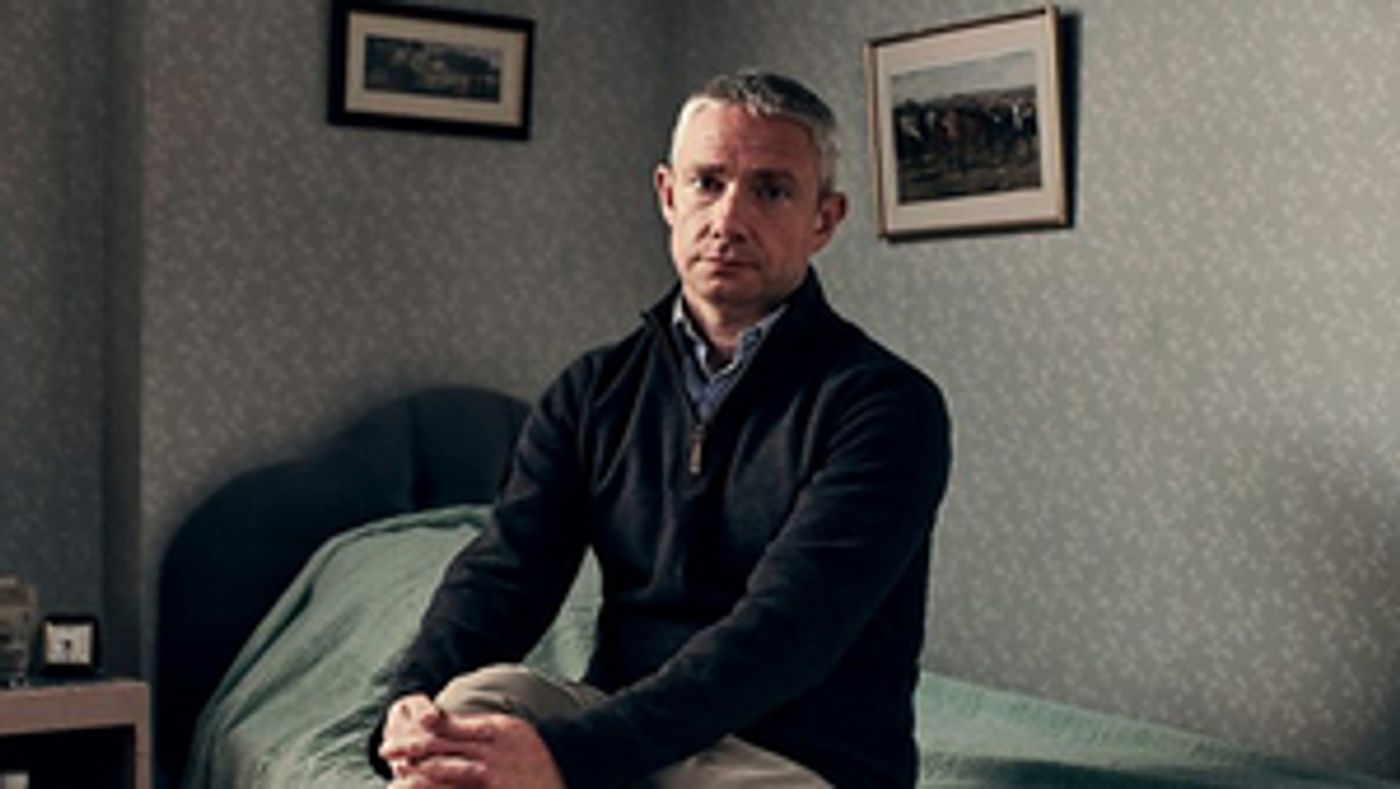Review: TALKING HEADS: A CHIP IN THE SUGAR, BBC iPlayer

![]() You wonder, at least at first, whether Martin Freeman is just a bit too assertive in his interpretation of Alan Bennett's script - perhaps it doesn't help that the words were first spoken by Bennett himself 30 or more years ago.
You wonder, at least at first, whether Martin Freeman is just a bit too assertive in his interpretation of Alan Bennett's script - perhaps it doesn't help that the words were first spoken by Bennett himself 30 or more years ago.
Then, as Freeman develops his interpretation, you understand how the character works in 2020 and how a new director and actor must "own" the work. Instead of a jarring mismatch, this new version of "A Chip In The Sugar" becomes a beautiful justification for the BBC's revisiting of the much-loved monologues.
Graham Whittaker lives with his mother, Vera, who is sliding into dementia with all the frustrations of memory loss that comes with it, but his coping with her deterioration gives days a focus they would otherwise lack. In a paradox one sees often within such arrangements, he resents the sheer size of her presence in his life, but, once any disruption threatens their "attention trade-off", anything else seems worse, much worse, than the status quo.
A chance meeting with a chancer, Vera's old flame Frank Turnbull, is exactly that kind of disruption, whisking her away to modish shopping malls, to cafes with ketchup in tomato-shaped dispensers and, frighteningly, soon to Tenerife. Graham's old paranoia comes back, his displacement activity now displaced - but, as any paranoid person will assert, sometimes they're right.
Since 1988, much has changed for the closeted gay man and in our understanding of mental illness, but it's a credit to the writing (and a damning of the brittle, uneven nature of that progress) that anachronisms are few and far between. There are allusions to the culture clash between the liberal Guardian reader and the unreconstructed racist that might have looked a bit 1988 in 2012, but look very 2020 in 2020. There's also the locking-in of Graham and his mother, circling each other, following routines for fear of any wobbling off-kilter, neither knowing what's really out there, both sure that it can't be good. That feels a bit 2020 too.
Freeman is the key. He gets the passive aggression, the pent-up sexual frustration, the guilt over the magazines exactly right. The self-pity is there, the narcissism, the thin skin, but (and this is the real achievement) you don't despise him, you just wonder at the quiet desperation behind so many mundane lives. As far as Bennett is concerned, that is surely mission accomplished.
Alan Bennett's Talking Heads is now on the BBC iPlayer.
Photo BBC/London Theatre Company
Reader Reviews
Videos


